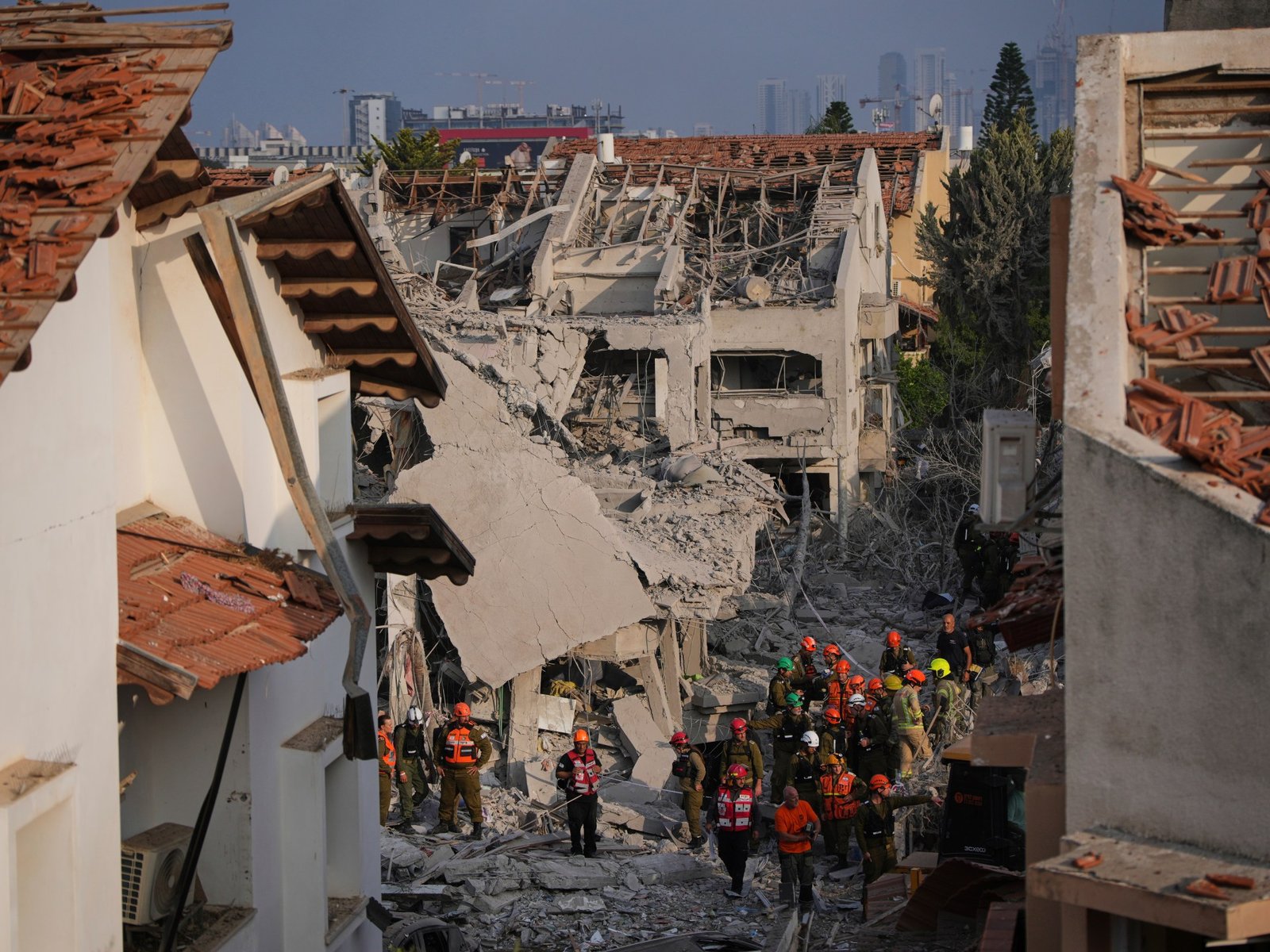Physical Address
304 North Cardinal St.
Dorchester Center, MA 02124
Physical Address
304 North Cardinal St.
Dorchester Center, MA 02124

In Iran and Israel, explosions and air raid sirens are once again heard, as both nations continue to exchange rockets and drones, the day after Israeli military personnel killed the best Iranian generals and nuclear scientists in the worst decades.
Iran’s revenge strikes have killed at least four people since Friday and wounded more than 200 others in Israel, as dozens of Iran’s rocket obstruction at night illuminated the sky above Jerusalem and Tel Aviv.
At least 80 people have been killed on the Iran side, including women and children, and more than 320 other injured, as the Israeli army targeted residential areas in the capital, Tehran, military sites and nuclear equipment, killing at least nine nuclear scientists.
In accusing Israel of the initiation of war, Iran’s highest leader, Ajatolla Ali Khamene, told that it “had to wait for a heavy penalty” for killing several senior military commanders and scientists.
In a report on State TV, he said Israel “should not think it is over because they attacked and it is complete”.
“No. They started it and started war. We will not let them escape this big crime they have done,” Khamene said.
After decades of hostility and conflict with power, this is the first time Israel and Iran have traded with fire with such intensity, with fear of a long -lasting conflict committed to the region.
Israeli Defense Minister Israel Katz warned on Saturday that “Tehran was burning” and its residents would pay expensive if Iran continues its missile strikes against Israeli civilians.
“The Iranian dictator turns Iranian citizens into hostages and introduces a reality in which they, especially Tehran, will pay a difficult price because Israeli civilians have a criminal judge,” Katz said.
“If Khamene continues to shoot rockets on the front of the Israeli home, Tehran will burn,” the minister added.
On Saturday, two projectiles hit Tehrabad Airport, which houses the Air Force base with fighter jets and transport aircraft and is located near the main buildings of the Iranian government.
“The attacks caused bombings at the airport, but did not affect the runways, buildings or rooms,” said Iran’s publicly managed news agency Irna.
Israeli military personnel also continued to start strikes in nuclear equipment in Iran.
“In some areas, Fordow has been limited to damage at the Fordow enrichment,” the Isna News Agency reported on the Iranian representative Behrouz Kamalwandi on Saturday.
“We had already moved a significant proportion of equipment and materials, and there was no much harm and there was no concern for contamination.”
Meanwhile, several Iranian missiles entered the Israeli Iron Dome defense system and surprised Central Tel Aviv, Rishon Lezion and Ramat both areas.
Air raid sirens that injected Tel Aviv and Jerusalem by sending residents rushing to shelters. An Israeli official said Iran had fired about 200 ballistic missiles in four waves.
The overnight stay was shot down in a densely populated building in the center of Tel Aviv. According to the Israeli newspaper Haaretz, at least nine buildings were destroyed by Ramat.

Mike Huckabey, the United States Ambassador to Israel, said he had to go to shelters five times at the night of the Iranian rocket. “Now here is a template. It should be quiet. Probably not. The whole nation according to the order to stay near the shelter,” he posted X.
The Israeli army said on Saturday that seven of its soldiers were injured in the ballistic missile attack on the central part of Israel. According to a military statement, they were taken to hospitals and have since been released.
This is the first confirmation of Israeli military accidents since the exacerbation of Iran and Israel’s war started two days ago.
Meanwhile, Palestinian news agency WAFA reported that five people on the occupied West Bank were injured as rocket Shrapnel fell near Sa’ira’s city near Hebron. The five injured had three children, six, seven and 12 years.
Wafa previously reported that Israel has imposed a wide closure throughout the occupied West Bank, taking into account the conflict with Iran. Israeli forces have closed their roads, created checkpoints and prevented the freedom of movement of the Palestinians.
Iran has also warned Israel’s allies – the United States, the United Kingdom and France – that their bases and ships in the region will be targeted if they help to defend Israel.
“Any country involving Iran’s attacks on Israel will be subjected to the targeting of the regional bases of all participants in the government, including military -based Gulf countries and ships and sea vessels in the Gulf of Persia and the Red Sea by the Iranian forces,” the government said in a government statement.
Iran has already accused the United States of participating in attacks and said it was fully responsible for the consequences.
Shahram Akbarzadeh, a professor of Middle East Policy in Australia, Deakin University, said that both Israel and Iran seem to “stay on a long time” and could expect more attacks. He said the United States would also be dragged into a conflict.
“When Israel starts attacks on Iran, Iran has to respond, and I think Israel actually handles this dynamics – that after the conflict begins the United States, the United States has an obligation and commitment to Israeli security,” Al Jazeera told Akbarzadeh.
Meanwhile, Israeli Prime Minister Benjamin Netanyahu urged people to get up in Iran in the leadership of the “evil and depressing” regime and look for “freedom”.
Reporting from Tehran, Al Jazeera Tohid Asadi said Netanyahu’s message was undesirable after the Iranian people.
“We must remember that the people of Iran live in the shadow of the war, which is now translated into real war. They are also subject to sanctioned pressure,” he said.
“People are angry, especially the fact that recent strikes are not only military officials and nuclear scientists, but also very ordinary citizens.”